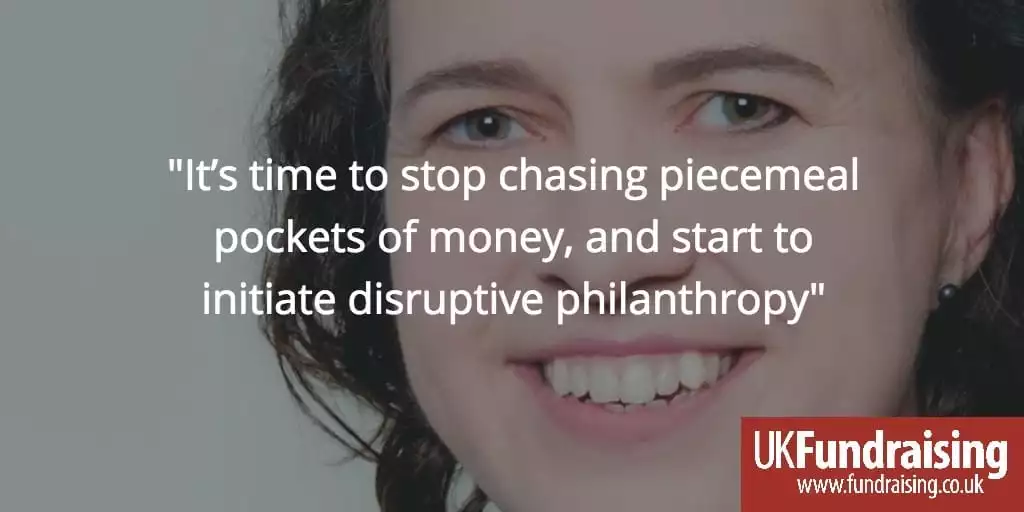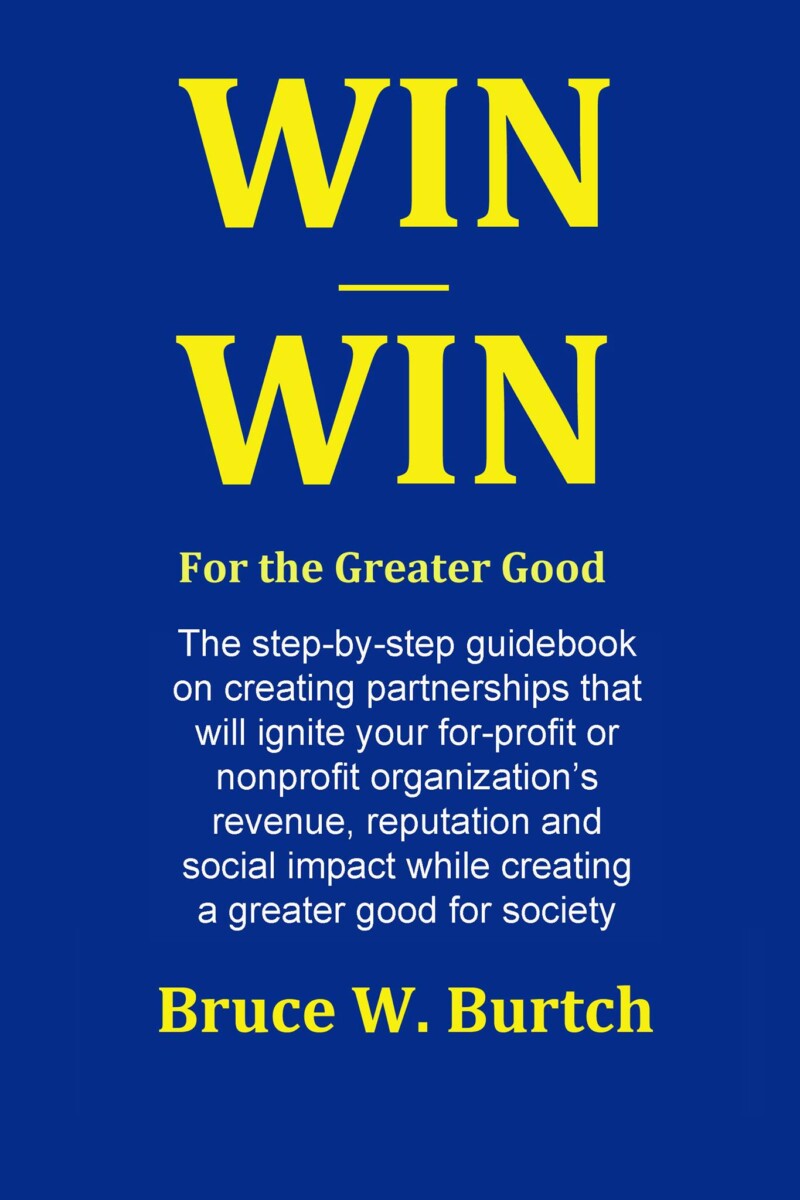CSR must make way for disruptive philanthropy
Unfortunately, much of today’s Corporate Social Responsibility (CSR) falls short of making a real difference. Once the regulations for company reporting changed in 2014, so that organisations were no longer required to report on their CSR activities, many programmes dried up.
This was coupled with a decrease in corporate giving reported in 2016 – down £2.1bn, according to Charities Aid Foundation, the lowest level of donation for six years. Charities have been told to be more commercial, and at the same time, to ensure they are transparent with the general public about their charitable status. It’s a confusing time for anyone in the fundraising world.
If we appear more commercial, how do we target the CSR budgets that might see us as already self-sufficient? Should we be targeting sponsorship or CSR budget holders? And do they still exist?

Michelle Wright: “fundraisers need to think smarter”
Effective CSR has a lasting effect on social, educational and environmental issues. It’s more than just supporting charities with financial donations. Fundraisers need to think smarter. It’s time to stop chasing piecemeal pockets of money, and start to initiate disruptive philanthropy – long-term interventions that are the result of a collaboration between corporations, Government, charities, NGOs and philanthropists. Effective change can only happen in partnership.
We can learn some great lessons from the best corporate philanthropy that focusses on a particular need, gathering expertise, manpower and ideas, in order to make things happen. The Bill & Melinda Gates Foundation is an excellent example of disruptive philanthropy tackling AIDs, TB and malaria, worldwide, in unique ways. In their model, they take an active approach to ‘solve’ key, world issues through entrepreneurial partnerships that include USAID, the World Health Organisation, and many more.
The impact can be long-term or very immediate, and it doesn’t have to be large-scale – small-scale can make a difference, as can in-kind support.
How donated time fixed healthcare.gov
When the US’s healthcare system (aka Obamacare) went online, the heathcare.gov website was riddled with problems. After only 1% of interested people were able to enrol in the first week, it was attracting all the wrong attention. Technologists from Google and other tech companies volunteered their engineering skills to help solve the problem. The donation of their time and technical know-how was more important than a blank cheque, at that moment. It was a philanthropic gesture, despite no actual money changing hands.
The rise of earned income by charities
Similarly, encouraging entrepreneurship is important and more and more charities are taking this lesson to heart. In fact, according to the latest NCVO figures, earned income (or commercial/traded income) accounts for over 55% of the charity sector’s income. Making the money, for some charities, has become a more reliable route to funding their programmes.
Whether that’s selling gifts or services, or working with corporate partners to create life-changing support programmes.
Advertisement
Recyling money
Microfinancing, spearheaded by the Grameen Bank, follows the same principal of supporting entrepreneurial endeavour to reduce poverty. The bank’s founder, Nobel Prize-winning Professor Muhammad Yunus, thinks that charity, alone, isn’t enough. “Charity money goes out, does that wonderful thing, but the money doesn’t come back,” he said in an interview at the end of 2016. “It is only a one-time use of your money.” The new partnership with Freedom from Hunger to form a single, unified global organisation aims to reach far beyond the 8.6m microloans currently offered to families, and to meet more of the demands of the estimated 800m people world-wide that are still living in poverty.
Time for disruptive corporate philanthropy?
Anyone working in Corporate Social Responsibility has suffered similar frustrations, as their fundraising counterparts in the charity sector. Seeing their budgets cut and a lack of company-wide interest in CSR has left many, talented CSR folk with the need to be inventive. Indeed, if more of us pooled resources, we could see some innovative collaboration between companies, charities and the not-for- profit sector, which could make a huge and immediate difference, with or without traditional fundraising.
Philanthropy should be a disruptive force for good, Corporate Philanthropy, perhaps even more so. Thinking creatively can generate programmes where talented, committed people come together to address a need and implement a programme of charitable activity that goes on to develop a life of its own.
Michelle Wright is Founder and CEO of Cause4.




